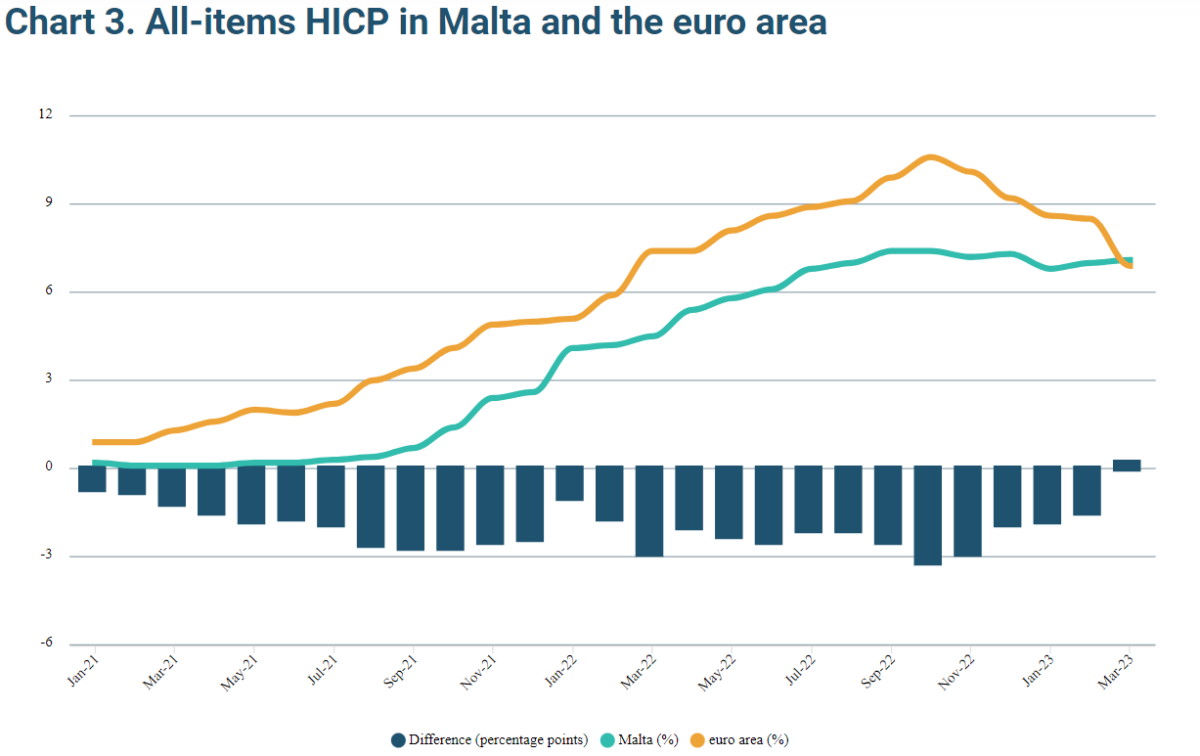Malta’s rate of inflation has increased by another 0.1 per cent from seven per cent to 7.1 per cent in March 2023. The 12-month moving average for inflation stood at 6.8 per cent, up 0.2 from February 2023.
This indicates that persistent upward price pressure is preventing Malta’s rate of inflation from declining and is only 0.3 per cent below its peak in September 2022. This means that Malta’s rate of inflation is above the eurozone average which dropped below seven per cent.

Food and non-alcoholic beverages continue to be the primary drivers of upward annual inflation (12.9 per cent) followed by housing, water, energy and fuels (9.5 per cent)
On a monthly basis, only the cost of transportation declined (0.5 per cent), while the cost of clothing and footwear increased the most (10.8 per cent).
The National Statistics Office noted that the largest upward impact on annual inflation was registered in the food and non-alcoholic beverages index, largely due to higher prices of meat. The second and third largest impacts were measured in the restaurants and hotels index, and the housing, water, electricity, gas and other fuels index, mainly on account of higher prices of restaurant services and house maintenance services, respectively.
The European Central Bank raised interest rates a further 0.5 per cent on 16th March to combat the persistently high rate of inflation.
Malta introduces new 15% tax regime for highly skilled professionals
Qualifying individuals are taxed at a flat 15% rate for an initial five-year period
Malta’s inflation edges up to 2.7% in October as food and services lead price pressures
The October RPI reading indicates some re-acceleration in consumer-facing sectors after a period of summer stabilisation
db Group reports turnover of almost €100 million and record profit as it opens bond issue to public investors
This coincides with the launch of a €60 million bond programme to support the Group’s continued expansion






